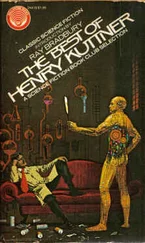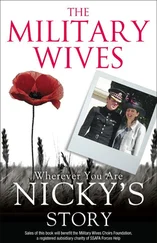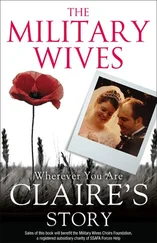He was left alone with Mr. Freylock. “Would you like to lie down now, Henry?” He spoke carefully, as if addressing an unpredictable lunatic. “I’ll draw the curtains.”
It was not yet two in the afternoon. “I’m fine here,” said Henry. He sat close to the glassed bookcase. There were history books galore, biographies, books on animal husbandry, but no novels for Meg.
“Well then,” said Mr. Freylock. “Duty calls. I’ll be getting back to my desk. You know how it is.” He gestured toward the small bell on the side table. “Don’t hesitate to ring.”
“I’d like to arrange a posse,” said Henry.
Mr. Freylock removed his spectacles, blinking. “Henry, Henry, Henry.”
“I’ll pay.”
Mr. Freylock brought out his handkerchief and polished the lenses. “That’s not the issue.”
The anger thickened Henry’s voice. “What would you do in my place, sir?”
Mr. Freylock held the spectacles up to the window for inspection. “I’d be every bit as distraught, I’m sure. I’d propose infeasible schemes. It’s only natural. We turned over every last bloody stone looking, Henry. Do you remember my telling you?”
“I do, sir.”
“We almost lost Tom Flowers.”
“I know Tom.”
Mr. Freylock returned the spectacles to his face, blinking still. “Of course you do. Good lad. Quick with a joke. Fifth child on the way. I didn’t tell you before. Didn’t want to add to your distress. Nothing you could have done for him. Nothing any of us could have done, except perhaps turned back straightaway.”
Perspiration trickled down Henry’s spine. The room was warm, as stifling as a summer greenhouse. “About Tom?”
“He sliced his hand,” said Mr. Freylock. “Nice and deep, but manageable. This was the fourth night out. We stayed gone a week, you’ll remember, the better part of eight days, actually.”
Henry heard a scratching outside the door and pictured his children standing on the other side, eager to surprise him. His mind playing tricks, he realized.
“…We weren’t surgeons,” Mr. Freylock was saying. “We wrapped the wound, thought, well, a cut’s a cut, isn’t it? None of us could have anticipated infection. They took his writing arm at the elbow. Poor man.”
“Yes,” murmured Henry. “Poor Tom. I’m sorry to hear it.”Tom’s pretty wife suffered a clubfoot, an odd thing to remember now.
A Freylock family photograph hung on the opposite wall, the parents and children posed as he and Meg had posed not long after the twins were born. Were his babies rolling over yet? Josephine was a veritable little acrobat at five months, their age now. God, how he missed them all.
Mr. Freylock came to him, laying a hand upon his shoulder. “We’ve done all we can, then. Everything within reason. Do you see that we have?”
Henry nodded. There’d be no help here.
“It wouldn’t be disloyal to acknowledge their passing, Henry. I’ll arrange a memory service if you’re ready.”
“I’m not,” said Henry, beginning to plan his escape. He’d had enough of this place already.
HE DREAMT of John that night. His son came walking out of the bush, steady and sure. Henry took it as a sign they’d be returned to him. He lay awake in the dark, cursing himself for having had doubt. In the morning he proposed rebuilding the cottage. “Just as it was,” he said.
Curiously, Mr. Freylock heartily agreed. He slapped the breakfast table, rattling the cutlery. “Capital idea! Isn’t it, darling?”
Mrs. Freylock smiled and passed the last rasher of bacon Henry’s way. “Yes, indeed. It’s a splendid plan. Aren’t you smart to think of it, Mr. Oades.”
“We’ll get started straightaway,” said Mr. Freylock, dribbling red jam.
Henry had not expected such enthusiasm. Perhaps they simply wished him gone. He gave it no further thought. Having the cottage restored was all that concerned him just now. Otherwise, how would they find their way back to him?
THE OWNER of the property gave his permission. A new lease was signed. Dozens turned out to help, colleagues and strangers both. Henry had never laid eyes on some of them. He sat in his wheelchair, beneath the shade of a ladies’ white parasol. The men sawed, hammered, and painted; the women served from overflowing hampers, vying to bring Henry a plate. The cottage was finished in six days. The donated furniture inside was different, but the outside was nearly identical, down to the green shutters and red door.
Mrs. Freylock asked about flowers.
“Roses,” said Henry. “And blue hydrangea.”
He watched the flowers go into the ground.
“He’s smiling,” someone whispered. “He’s bearing up well.”
On Sunday Henry attended evening services. Everyone seemed to expect it of him. He got through it. A bachelor colleague, Simon Reed, brought him back to the cottage afterward. “You’re not equipped to see to yourself, Henry.”
“I am, Simon,” Henry insisted. His family would come. They’d see to him, and he to them. Things would right themselves. They’d all be fine. He believed it wholly.
Simon pushed him up the new ramp and inside, muttering under his breath. “A man in your state shouldn’t be left alone.”
“I shall get on fine here,” said Henry.
Simon lighted a lamp and set it on the table.
“If you’ll light the others, please.”
Henry had him light every lamp, seven in all.
“Where would you like them, Henry?”
“I’ll take care of it,” said Henry. “You’ve done enough. Go on home now.”
Alone, Henry maneuvered the wheelchair without difficulty. He put one lamp in his lap and rolled himself, setting the lamp in the side window, returning then for the next lamp. Lamp by lamp, he turned the room bright, as gay as a ballroom, making himself visible ten miles out.
He ate hard cheese and opened the brandy someone had left, putting out another goblet. Meg enjoyed a nice brandy. He rolled himself to the front window again, restless, excited. But they did not come. Not that night, nor the next. A quiet week passed, then another. He sat on the porch daily, his eyes fixed on the road. He went inside eventually and sat there, a useless stump by the window. Sweet Jesus. Every bloody day.
He rose one morning and limped unaided to the grave out back. He stood over the mound until his leg would no longer support him, then sat alongside and began to dig. He hadn’t planned to do it; but once started he could not stop.
Almost before he pulled aside the sheet he knew. He brushed dirt from the skull, recognizing the sharp little tooth way back in her head, pointed, darker than the others. Henry cried out and began to cover her again. He scooped great handfuls as fast as he could, tamping down the crumbly dirt, beating it hard. He fell back exhausted, sobbing, struggling for air. He calmed after a while, but did not, could not, move. For months he’d felt her about, alive, and now he did not. He could no longer pretend. Meg was gone, lost to him forever. He lay stunned, face to the sun. He’d thought they had all the time in the world.
HENRY FOUND flat black seeds lying loose on a pantry shelf and planted a few at the foot of Meg’s grave. He watched faithfully, witnessing the first shoot, the subsequent withering and dying. He gave thought to starting over, but knew the same would happen. He’d never had much luck in a garden. So he quit, and his days turned that much longer.
Mr. Freylock rode out at the end of June. “Good God,” he said straight off. “Have a flock of filthy sheep been run through here?”
Henry said nothing. A bit of dust, a dried rat turd or two hardly warranted comment.
Читать дальше












